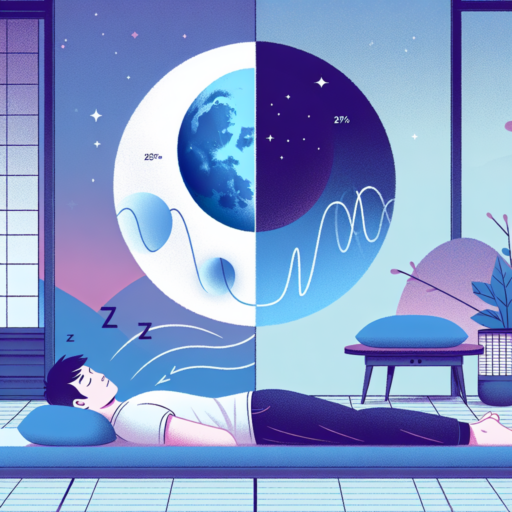No se han encontrado productos.
What is the ideal sleep pattern?
Understanding the ideal sleep pattern is crucial for promoting overall health and well-being. It’s widely recognized that adults should aim for 7-9 hours of sleep per night, but there’s more to an ideal sleep pattern than duration alone. Factors such as consistency, sleep phases, and quality also play significant roles.
Consistency is key in establishing an ideal sleep pattern. Going to bed and waking up at the same times each day helps to regulate your body’s internal clock, or circadian rhythm. This regularity can lead to improved sleep quality over time, as your body becomes accustomed to a predictable sleep schedule.
Moreover, understanding the sleep phases—ranging from light and deep sleep to REM sleep—is crucial. An ideal sleep pattern cycles through these stages multiple times each night. Ensuring that you complete these cycles without interruption can enhance the restorative benefits of sleep, affecting everything from memory consolidation to muscle repair.
Which is better, REM or deep sleep?
Understanding the different stages of sleep is key to answering the question: Which is better, REM or deep sleep? Both stages play critical roles in our health and well-being, but they serve different purposes. REM sleep, known for being the stage where dreams occur most vividly, is crucial for cognitive functions such as memory, learning, and emotional processing. On the other hand, deep sleep is the most rejuvenating stage, essential for physical recovery, hormone regulation, and immune system strengthening.
Benefits of REM Sleep
- Enhances learning and memory consolidation
- Fosters creativity and problem-solving abilities
- Supports emotional and psychological health
Benefits of Deep Sleep
- Promotes physical recovery and cell regeneration
- Regulates growth and stress hormones
- Strengthens the immune system
Both REM and deep sleep stages are indispensable for a healthy sleep cycle. While REM sleep plays a more significant role in brain functions and emotional regulation, deep sleep is vital for physical health and recovery. To achieve optimal well-being, it’s essential to ensure a sleep cycle that includes adequate amounts of both REM and deep sleep.
How do I get a good sleep pattern?
Establishing a good sleep pattern is essential for both your mental and physical well-being. The cornerstone of improving sleep quality starts with understanding your body’s natural rhythm and creating a schedule that aligns with it. Firstly, try going to bed and waking up at the same time every day, including weekends. This consistency reinforces your body’s sleep-wake cycle.
Another key element is creating a relaxing bedtime routine that signals to your body it’s time to wind down. In this digital age, consider reducing screen time at least an hour before bed since the blue light emitted by screens can interfere with your ability to fall asleep. Incorporate calming activities, such as reading a book or taking a warm bath, to help your body transition to sleep mode.
Lastly, paying attention to your sleep environment can make a significant difference. Ensure your bedroom is conducive to sleep—cool, dark, and quiet. Investing in a comfortable mattress and pillows can also enhance the quality of your sleep. Remember, improving your sleep pattern is a journey, and making small adjustments incrementally can lead to successful long-term results.
How much REM sleep do you need?
The amount of REM (Rapid Eye Movement) sleep you need can vary significantly from one person to another, yet understanding the optimal range is crucial for maintaining your health and well-being. REM sleep, characterized by rapid eye movements, vivid dreams, and increased brain activity, plays a fundamental role in cognitive functions and emotional regulation.
Generally, adults should aim for approximately 20-25% of their sleep to be REM sleep. This translates to around 90-120 minutes per night for someone who gets a full eight hours of sleep. However, this is not a one-size-fits-all scenario. Factors such as age, lifestyle, and individual health conditions can influence the exact amount of REM sleep that is ideal for each person.
Age is a significant determinant in how much REM sleep you need. For instance, newborns spend about 50% of their sleep time in REM, which gradually decreases as they age. Stress and lifestyle choices can also impact the quality and quantity of REM sleep, with both inadequate sleep and excessive stress potentially diminishing the proportion of REM sleep. To ensure you are getting enough REM sleep, it is important to follow good sleep hygiene practices, including maintaining a consistent sleep schedule and creating a comfortable sleep environment.




